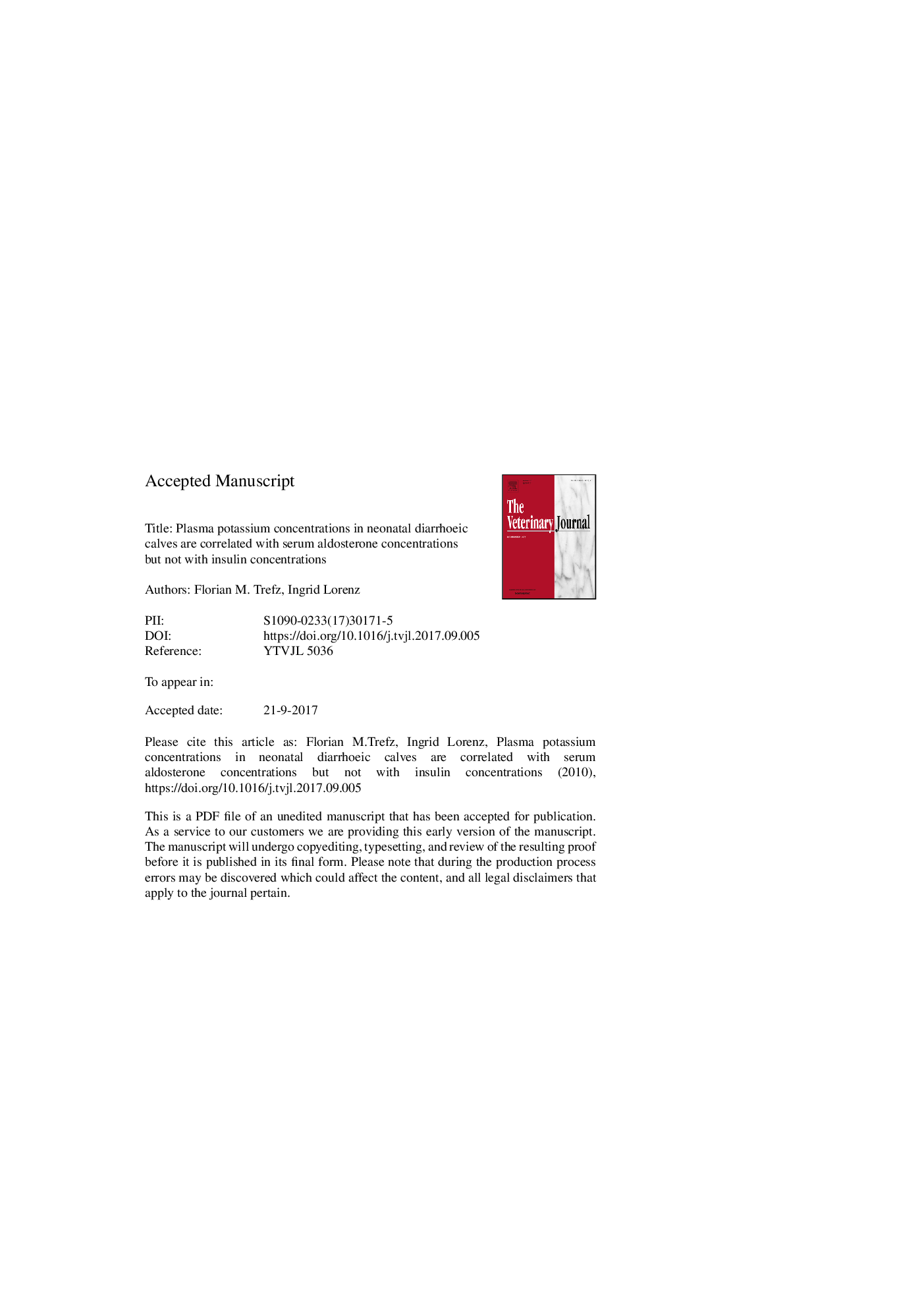| Article ID | Journal | Published Year | Pages | File Type |
|---|---|---|---|---|
| 8505019 | The Veterinary Journal | 2017 | 14 Pages |
Abstract
Hyperkalaemia is a clinically relevant electrolyte imbalance in neonatal diarrhoeic calves which was previously associated with severe dehydration and acidaemia. The present study assessed the association of plasma potassium (cK) with serum aldosterone and insulin concentrations, since these hormones are involved in the regulation of potassium homeostasis. Serum aldosterone (rs = 0.62), but not insulin concentrations (rs = 0.22) were closely correlated to cK in 123 hospitalised neonatal diarrhoeic calves. Median values for serum aldosterone concentrations in 38 hyperkalaemic calves (cK > 5.8 mmol/L) were 3.2 and 15.3 times higher (P < 0.001) than in 85 non-hyperkalaemic diarrhoeic calves and nine healthy control calves, respectively. Aldosterone, but not insulin secretion, appears to be highly stimulated in dehydrated diarrhoeic calves with hyperkalaemia, but hypovolaemia and a concomitant decrease in renal perfusion and urinary flow rate are likely to limit the efficacy of aldosterone-induced control mechanisms in these animals.
Related Topics
Life Sciences
Agricultural and Biological Sciences
Animal Science and Zoology
Authors
Florian M. Trefz, Ingrid Lorenz,
